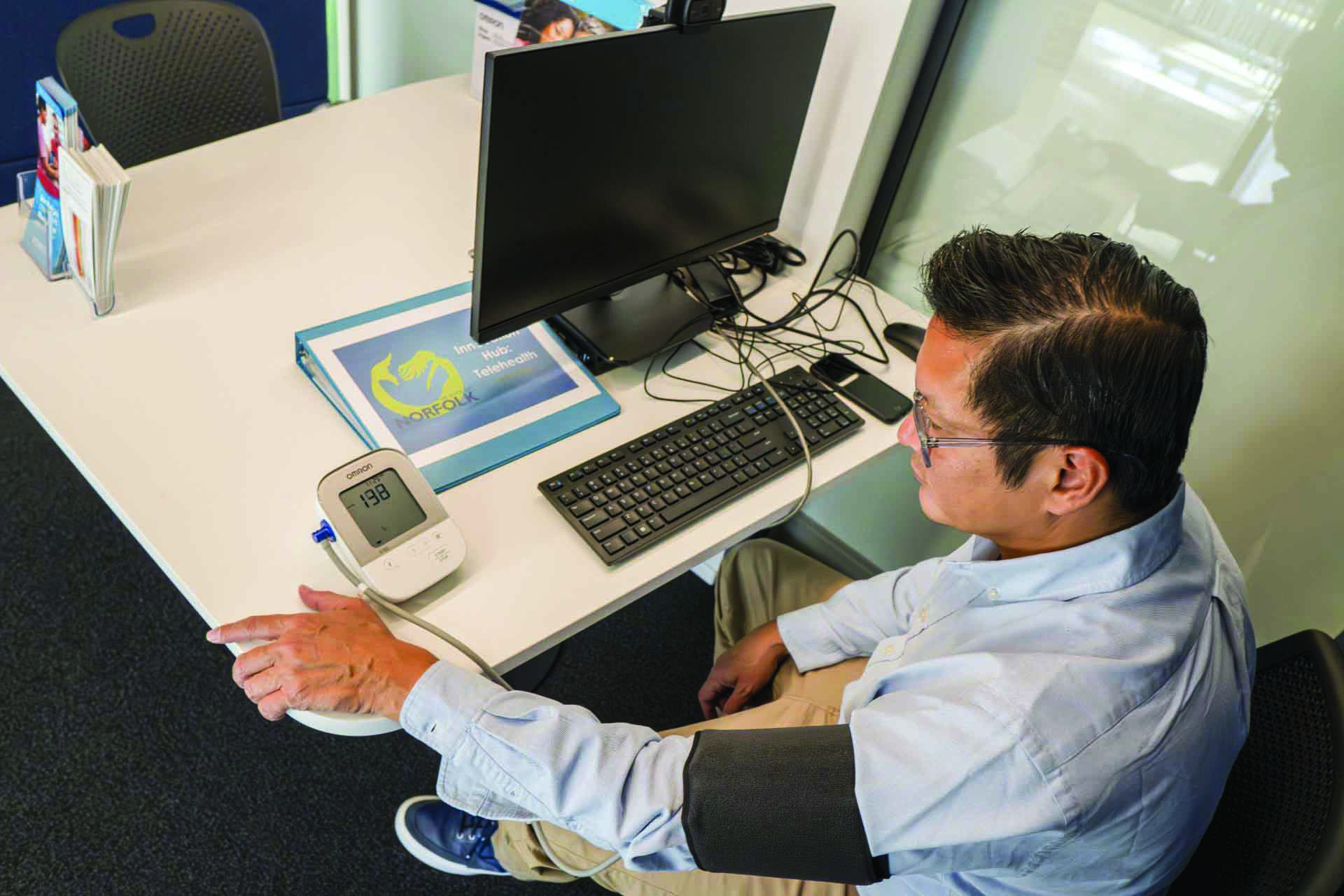Happiness and health begin with YOU.
Amidst the hustle and bustle of everyday life, we often forget to prioritize one crucial aspect of life: self-care. It’s not just about pampering yourself with a spa day or indulging in your favorite dessert. Rather, it’s a holistic approach to nurturing your physical, mental, and emotional well-being that is vital for maintaining a healthy relationship with oneself. Self-care can also help manage stress and maintain balance in life, which is especially important in today’s fast-paced world.
Elizabeth Frackleton, a national board-certified health and wellness coach at the University of Virginia, defines self-care as “taking the time to do things that help you live well and improve your physical and mental health.” At UVA, Frackleton wears many hats. She’s not only a wellness coach, but she’s also a registered nurse and a certified medical yoga practitioner. At UVA, she offers self-care workshops to help university employees make positive changes, be it in their diet, sleep patterns, or financial goals. While she believes everyone should have a health and wellness coach—much like having a business coach, career mentor, or personal trainer—if that’s not an option, Frackleton recommends three simple steps to prioritize self-care.

Silke Bachmann
1. Assess Your Needs
Understanding your needs involves thoroughly and honestly evaluating various areas of your life. You should first list different aspects of your daily life and the activities you do each day related to work, school, relationships, and family. Consider which of these bring fulfillment and which make you feel stressed.
Before Frackleton begins working with clients, she sends them an intake form that includes a health history and a wellness inventory, which helps to identify their strengths, readiness for change, and values—or “whys.” According to Frackleton, discovering your “why” is the foundation for visualizing and creating your ideal lifestyle.

Silke Bachmann
2. Devise Self-Care Strategies
When creating a self-care plan, consistency is vital. One of the most essential elements of Frackleton’s coaching practice is goal setting, and she’s a big proponent of setting smart goals. It’s important to brainstorm activities to help you feel better in each area and to prioritize yourself on your to-do list. “When you find that you’re neglecting a particular area of life, your self-care plan will help you get back on track,” she says.
Incorporating activities like meditation, yoga, fitness classes, or walking into your routine can give your mind a much-needed break. In addition, socializing with friends, eating a balanced diet, and getting adequate sleep are all part of a healthy self-care routine. These practices keep your body in shape and boost your energy and mood by increasing serotonin levels, the body’s natural feel-good hormone.

Silke Bachmann
3. Take Small Steps
Don’t try to tackle everything at once. Instead, start with a tiny step, which, for Frackleton, would be an activity identified in a client’s wellness inventory. Small tasks such as a 10-minute walk, two-minute breathing exercises, or 10 minutes of journaling can effectively establish a healthy routine. Even when you don’t think you have time, reflect on your identified values and whys, and remember that it’s not about grandiose gestures but consistent, small steps.
Frackleton encourages her clients to embrace a growth mindset and show self-compassion, acknowledging their worth and celebrating their successes—big or small. This approach can have an incredible impact on one’s self-confidence and outlook on life and should not be underestimated.
While self-care isn’t a one-size-fits-all concept, Frackleton believes that it is the foundation for everything in life. Self-care isn’t just beneficial; it’s essential for overall well-being. After all, she says, “If we can’t take care of ourselves, we can’t take care of others, and the healthier we are, the better we can cope and manage the stresses of life.”










